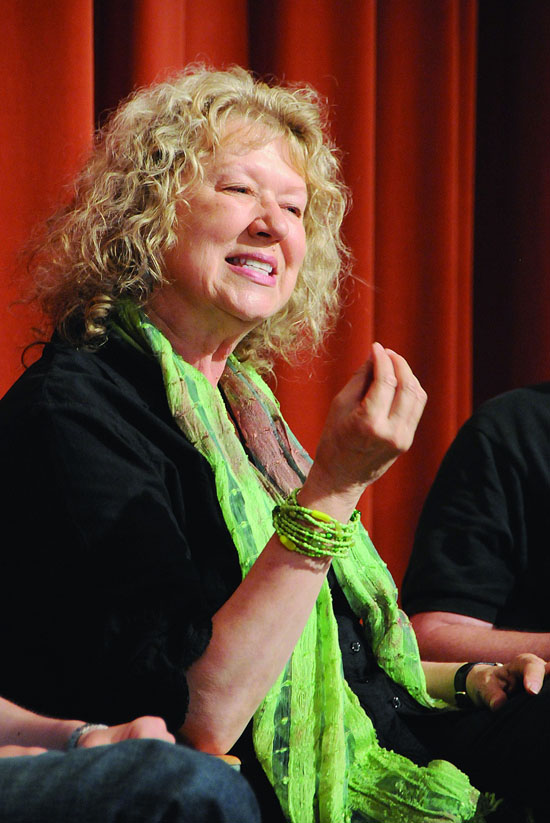
| ||||||
Prostitution, and the poverty that has propelled women to "choose" it, lies at the heart of Cal Shakes' upcoming production. Shaw wrote the play in 1893, but the subject was too controversial and the play wasn't performed until 1902. Remarkably, just one hundred and eight years later, the subject is so casually considered that Monday night's panel touched only lightly on prostitution, before zeroing in on the play's greater drama, the battle between generations.
Calling the company's interpretation "primal," Jonathan Moscone, Cal Shakes' Artistic Director, explained his reason for selecting the work. "So few writers put women up there at 100 percent and let them go at it," he said. With great respect for the "architecture" of Shaw's language, Moscone invited award-winning director Timothy Near to bring a modern sensibility to the production.
Inside Scoop is delightful, mostly for the spontaneous moments, like when dramaturge Philipa Kelly asked Moscone how in the world he got Near to agree to the task. "I asked her," he stated, waiting a beat. "And she said...'yes,'" he finished, receiving a burst of appreciative laughter for dramatic understatement.
Near, on the freelance market after 21 years as Artistic Director of San Jose Repertory Theatre, rapidly moved beyond the evening's poverty-leads-to-prostitution party line when describing her attraction to Shaw's play. Instead, the audience was treated to a zipped-up summary of Shaw's era and of his difficult relationship with his mother. In less than five minutes Near had revealed the intensely personal struggles buried within the playwright's tightly-honed language, told the story of her own mother's unusual upbringing, and dismantled the set model.
"Hopefully that won't happen," Near joked, when tipping the model to offer a better view caused the upstage portion of wall to collapse onto the stage area. Near's research on strip joints for a previous project, ("That wasn't in my family tree," she emphasized,) meshed well with Set Designer Erik Flatmo's concept of a garden and fences as metaphors for the Warrens' conflicted relationship. The set emphasizes the floor surface, with a dense floral pattern and an assortment of fences cutting through the space.
Stacy Ross, who plays Mrs. Warren, whipped out Shaw facts with lacerating depth and directness. "They're allowed to speak for themselves," she said, of Shaw's female characters. "They argue their points with passion," she added, well, passionately. Marveling that women went "from corsets to, just 20 years later, Coco Channel-with nothing underneath," Ross noted the role was written on the cusp of "a completely different idea of what a woman could be." She's intense and her comments stirred up visible energy in the crowd: people shifted in their seats, leaned forward, exchanged quick glances with others.
Anna Bullard is Vivie Warren, the daughter of the title character. "Cold" is an adjective applied to women with reduced emotional range, but Monday night's panel preferred "compartmentalized." It's a sympathetic word for Vivie and Bullard defends her character's clinical nature with personal stories and good humor.
Getting a glimpse into the making of a production is fun. It's a little like seeing what's in George Clooney's closet, or Oprah's fridge. How else to know that Shaw wrote lengthy stage directions that Moscone called "just wrong." Or the hours, days, weeks, Near put into finding the right music for underscoring the production.
Plus, at the end of the evening, the audience asks questions, like "Could this play be choreographed?" and "Do you have a way to get feedback after the play?" These questions, and others, would make Shaw roll over in his grave and smile. The playwright wanted theater-goers not to be told what to think, but to think. Cal Shakes tows the same line and Inside Scoop gives those who attend a broad platform from which to view the play and to think.

Reach the reporter at:
Copyright
